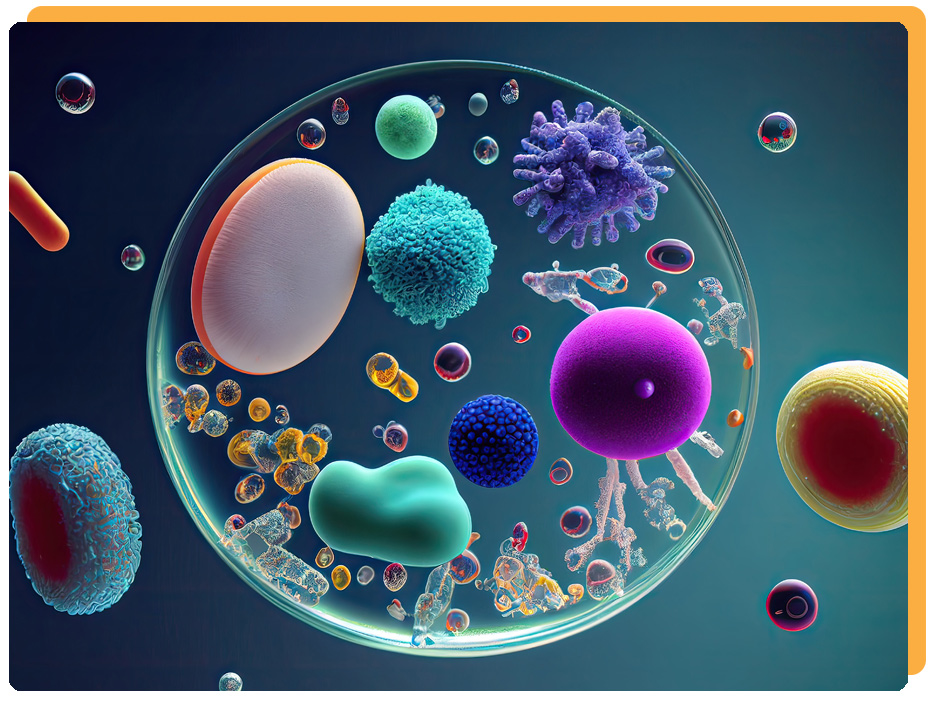Antidepressants not working
Depression and Mood Changes
Why antidepressants aren’t working
Mood disorders, such as depression and bipolar disorder, are typically treated with antidepressants, mood stabilizing medications and psychotherapy. Unfortunately, 1 out of every 3 people in the U.S. battling symptoms of depression find that their antidepressants aren’t working. 1 Medication and therapy seem to provide little to no relief.
Depression is characterized by a persistent feeling of sadness or loss of interest in things. Bipolar disorder, also referred to as manic depression, is characterized by sudden and dramatic changes in mood and energy levels. These mood changes can happen rapidly, leaving individuals feeling euphoric (mania) one moment, then down and out (depression) the next. 2
Antidepressants not working? It may be an immune dysfunction
Patients with these symptoms often succumb to a long process of trial and error to determine which, if any, antidepressants work for them. When patients find that their antidepressants or other medications aren’t working, they may be considered as having a “treatment resistant” illness. 1
There are various reasons why antidepressants aren’t working for some people. Patients may be treatment resistant because of an inadequate dosage of medication, patient nonadherence, intolerable adverse effects or an incorrect diagnosis. 3
In fact, researchers believe a subset of patients with mood disorders, who may be diagnosed with a psychiatric illness, may have an infection-driven autoimmune disorder instead. Mounting evidence indicates that infections and an abnormal immune response are associated with mood disturbances and changes in personality and behavior.
Could your depression or mood changes be due to an immune dysfunction?

Take Our Quiz
Answer a few questions to find out if you might benefit from testing with the Autoimmune Brain Panel™.

Learn More About Testing
Are your antidepressants not working? It may be due to an autoimmune response.

Some people who exhibit symptoms that mimic depression and bipolar disorder may actually have a treatable autoimmune dysfunction, triggered, in part, by an infection(s). These individuals may be experiencing an autoimmune dysfunction, rather than a standard psychiatric illness.
Bipolar disorder usually appears between the ages of 15 and 25. It is rare in young children and older adults. Only 10% of patients develop late-onset bipolar disorder (after age 50). 4 Therefore, people who exhibit symptoms of bipolar disorder at an early or late age may want to check with their doctor on whether they may have an infection-triggered autoimmune dysfunction.
Some people who exhibit symptoms that mimic depression and bipolar disorder may actually have a treatable autoimmune dysfunction, triggered, in part, by an infection(s). These individuals may be experiencing an autoimmune dysfunction, rather than a standard psychiatric illness.
Bipolar disorder usually appears between the ages of 15 and 25. It is rare in young children and older adults. Only 10% of patients develop late-onset bipolar disorder (after age 50). 4 Therefore, people who exhibit symptoms of bipolar disorder at an early or late age may want to check with their doctor on whether they may have an infection-triggered autoimmune dysfunction.
“Targeting the immune system shows promise for improving [bipolar disorder] BD outcomes as it may allow for disease modification through treatment of the underlying etiology (i.e., immune dysfunction), rather than only superficially treating the downstream effects as symptoms arise.” 2
Patients with an autoimmune-induced mood disorder may find that their antidepressants aren’t working or that medications are making symptoms worse if the treatment is not targeting an underlying infection(s) and immune dysfunction.
References
- Ionescu DF, Rosenbaum JF, Alpert JE. Pharmacological approaches to the challenge of treatment-resistant depression. Dialogues Clin Neurosci. 2015;17(2):111–126. https://www.ncbi.nlm.nih.gov/pmc/articles/PMC4518696/
- Benedetti F, Aggio V, Pratesi ML, Greco G, Furlan R. Neuroinflammation in Bipolar Depression. Front Psychiatry. 2020;11:71. Published 2020 Feb 26. doi:10.3389/fpsyt.2020.00071. https://pubmed.ncbi.nlm.nih.gov/32174850/ https://www.ncbi.nlm.nih.gov/pmc/articles/PMC7054443/
- Tundo A, de Filippis R, Proietti L. Pharmacologic approaches to treatment resistant depression: Evidences and personal experience. World J Psychiatry. 2015;5(3):330-341. doi:10.5498/wjp.v5.i3.330. https://www.ncbi.nlm.nih.gov/pmc/articles/PMC4582308/ https://www.ncbi.nlm.nih.gov/pmc/articles/PMC4582308/
- Prabhakar D, Balon R. Late-onset bipolar disorder: a case for careful appraisal. Psychiatry (Edgmont). 2010;7(1):34–37. https://www.ncbi.nlm.nih.gov/pmc/articles/PMC2848458/
- Rosenblat JD, McIntyre RS. Bipolar Disorder and Immune Dysfunction: Epidemiological Findings, Proposed Pathophysiology and Clinical Implications. Brain Sci. 2017;7(11):144. Published 2017 Oct 30. doi:10.3390/brainsci7110144 https://www.ncbi.nlm.nih.gov/pmc/articles/PMC5704151/
